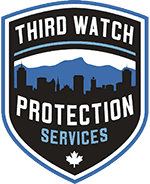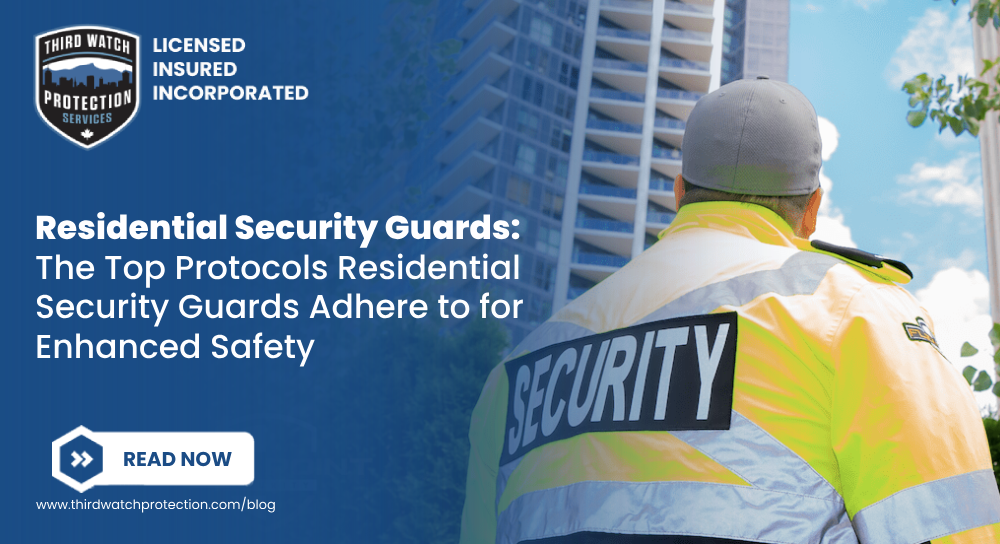Residential Security Guards: The Top Protocols Residential Security Guards Adhere to for Enhanced Safety
In a world where security concerns are on the rise, residential security guards play a crucial role in ensuring the safety and peace of mind of homeowners and their families. In Ontario, where communities range from bustling urban centers to tranquil suburban neighborhoods, the presence of trained security personnel can make all the difference. This blog post explores the top protocols adhered to by residential security guards that contribute to enhanced safety across the province.
Understanding the Role of Residential Security Guards
Residential security guards are not just hired muscle; they are highly trained professionals whose primary responsibility is to protect properties and residents. Their presence serves as a deterrent to crime, while their proactive measures ensure quick responses to potential threats. The protocols they follow are essential for maintaining a secure environment, and they align with legal standards and best practices for residential safety.
Top Protocols for Enhanced Security
1. Access Control and Visitor Management: One of the primary roles of residential security guards is to manage access to the property. This involves checking the identification of visitors, maintaining a log of incoming and outgoing traffic, and ensuring that only authorized individuals gain entry. Guards may employ a variety of measures, including:
- Security Gates: Guards monitor entry gates, controlling who enters and exits the community.
- ID Checks: Verification of visitor identification helps to prevent unauthorized access.
- Visitor Logs: Keeping detailed records of all guests and their purpose of visit enhances accountability.
These measures not only restrict unwanted individuals from entering the premises but also promote a sense of community safety among residents.
2. Surveillance and Monitoring: Modern security relies heavily on technology, and residential security guards are trained to utilize surveillance systems effectively. Their protocols include:
- CCTV Monitoring: Guards routinely monitor live feeds from security cameras, identifying suspicious behavior before incidents occur.
- Patrol Inspections: Regular patrols of the property ensure that all areas, including common spaces and parking lots, are secure.
- Alarm Response: Guard protocols include immediate response to alarms triggered by breaches, including theft or unauthorized entry.
By operating surveillance systems and conducting visible patrols, security guards deter crime and enable quick responses to emergencies.
3. Emergency Response Protocols: Preparedness is key in any security operation, and residential security guards in Ontario are trained to manage emergencies effectively. Protocols they follow include:
- Emergency Contact Lists: Guards maintain an updated list of emergency contacts, including local police, fire departments, and medical services.
- Evacuation Procedures: In case of fire or other emergencies, guards are trained in evacuation procedures to guide residents safely out of the building or area.
- First Aid Training: Many security personnel are certified in first aid, enabling them to provide immediate assistance in medical emergencies before professionals arrive.
These protocols ensure that security guards are ready to respond swiftly and effectively in times of crises.
4. Incident Reporting and Documentation: In conjunction with proactive security measures, incident reporting and documentation are vital components of residential security protocols. This involves:
- Daily Activity Reports: Guards must write detailed reports on their daily activities, log any incidents, and document visitor traffic.
- Incident Documentation: In case of an incident (theft, vandalism, etc.), guards must provide thorough documentation for law enforcement and insurance purposes.
- Communication with Residents: Keeping residents informed about incidents, potential threats, or safety tips fosters a sense of community and vigilance.
Reliable reporting helps build trust with residents and ensures that security measures are continuously evaluated and improved.
5. Community Engagement and Awareness Programs: Security guards play an essential role within the community, acting as liaisons between residents and law enforcement. They often engage in community awareness programs that include:
- Safety Workshops: Hosting workshops on personal safety, home security tips, and emergency preparedness.
- Neighborhood Watch Programs: Working with residents to establish or enhance neighborhood watch initiatives, which foster a collaborative approach to community security.
- Regular Residents’ Meetings: Conducting meetings to discuss security concerns, gather feedback, and promote cooperative problem-solving.
Community engagement enhances mutual trust and cooperation, empowering residents to take an active role in their security.
6. Maintaining Professionalism and Ethical Standards: The effectiveness of security personnel hinges on their professionalism and adherence to ethical standards. Guards must follow principles such as:
- Confidentiality: Respecting the privacy of residents and only disclosing information to relevant authorities when necessary.
- Non-Confrontational Approach: Prioritizing de-escalation in conflicts rather than resorting to aggression. Guards are trained to handle disputes calmly and professionally.
- Ongoing Training: Participation in regular training sessions to remain updated on best practices, new technologies, and legal regulations.
A professional demeanor builds credibility and trust, crucial components of effective residential security.
7. Utilizing Technology for Enhanced Security: In today’s digital age, security guards leverage technology as part of their protocols. This includes:
- Mobile Apps for Communication: Guards may use apps to communicate real-time updates on security issues to each other and to residents.
- Drones for Surveillance: In larger residential areas, drones can monitor broad sections of the property, offering an innovative avenue for surveillance.
- Smart Technology Integration: Security guards often collaborate with home automation systems to monitor and control access to smart locks, alarms, and lighting for enhanced security.
These technological advancements help security guards perform their jobs more effectively, keeping residents safe while embracing innovation.
In Conclusion
Residential security guards in Ontario are integral to enhancing the safety and security of communities. By adhering to established protocols for access control, emergency response, surveillance, and community engagement, these dedicated professionals provide much-needed peace of mind to homeowners. As technology continues to advance and crime patterns evolve, the methods and practices of residential security are likely to adapt, underscoring the importance of ongoing training and community collaboration. Investing in residential security guards is an investment in safety, ensuring that Ontario remains a safe and enjoyable place to live for all its residents.
Looking to switch security providers or maintain your current guards during a takeover? We’re here to help! Our team can create a seamless transition plan to ensure your building’s security remains uninterrupted. Contact us today at 1-888-444-5232 or mail@thirdwatchprotection.com to discuss your needs and let Third Watch Protection keep your residential building secure.



